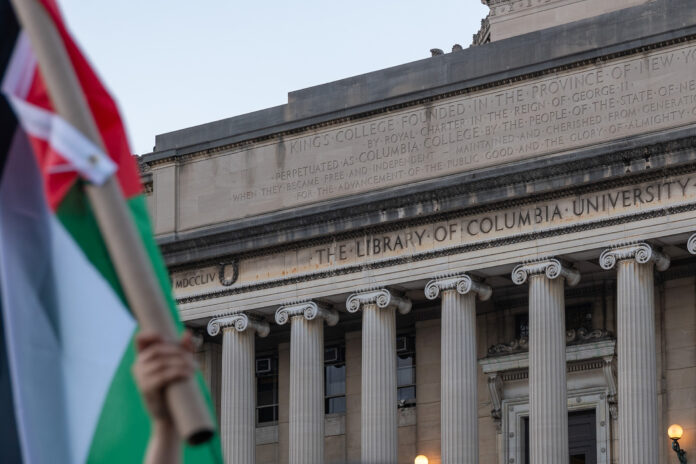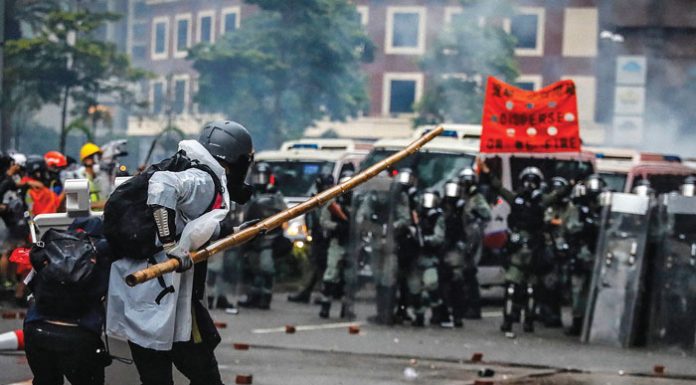
“Free Palestine”
The young women were sitting in front of the University of Pennsylvania Hillel building as I passed them by. I wasn’t sure if they were addressing me or the Jewish mothers who were handing out challah to students, but either way they seemed to be carrying out some form of mild pro-Palestinian protest aimed at Jews. There were also the sounds of a pro-Palestinian demonstration going on in front of a Starbucks a block away, which I had encountered on my way over.
Had college students been casually lobbing slogans at others because of their ethnic identities, they would have likely been called bigoted. But on college campuses all across the country, Jews have become the exception to that rule. And in many cases, the targeting of Jewish students has gone beyond slogans.
The same Hillel building I was now facing had been vandalized even before October 7, during a pro-Palestinian writing festival on UPenn’s campus that featured a number of anti-Semitic speakers. Aside from the United States, Jewish students in Canada, the UK and elsewhere have been physically attacked and threatened. Mobs of students and professors have repeatedly marched across college campuses, yelling slogans calling for the murder of Jews.
That universities aren’t willing to protect their Jewish students became clear this past week when the presidents of three of America’s most prestigious schools—Harvard, the University of Pennsylvania and MIT—were asked during a House committee meeting if public calls for the genocide of Jews violate university policy. All three used similar language, saying that it was “context dependent.”
Those disturbing responses mirrored much of the rest of their evasive testimony about what they are doing to keep Jewish students safe on campus.
The public response to their statements, including from the White House, led to the heads of Harvard and Penn issuing new statements, backtracking somewhat from their former remarks. But the mask had already been pulled off.
The fact that UPenn had been sued that same day by two students for violating their rights and failing to protect them from extreme harassment only underscored the problem that Jewish students are currently having on campus.
A wide range of experiences
The number of anti-Jewish incidents reported on college campuses in recent weeks is truly staggering. Just a month after the Hamas attacks, the Secure Community Network, a non-profit national Jewish security organization based in Chicago, said it had received 149 reports of harassment, death threats or violence on campuses across the country.
Reports from both students and parents have suggested that such incidents aren’t limited to prestigious schools, although it appears that some universities are better than others in this regard, and various administrations have been more responsive.
After speaking to numerous college students and reading several lawsuits, it’s clear that manifestations of anti-Semitism on campus can vary widely.
One of the questions that arose during the recent forum was how the college presidents viewed the chants that are popular at the pro-Palestinian rallies, such as “global intifada” or “from the river to the sea.” For most thinking people, these are calls for genocide against Jews, whether in Israel or globally. However, after carefully parsing the words, the presidents concluded that such chants might not violate rules against harassment if they aren’t directed towards specific students.
To read more, subscribe to Ami




















